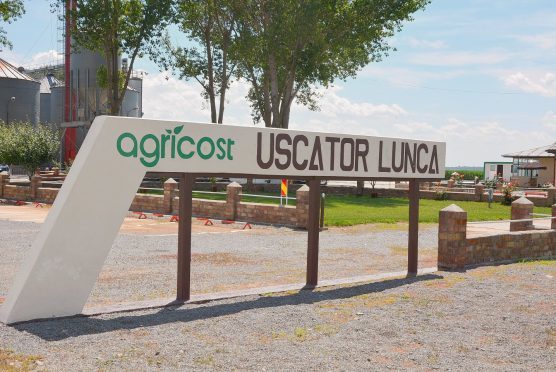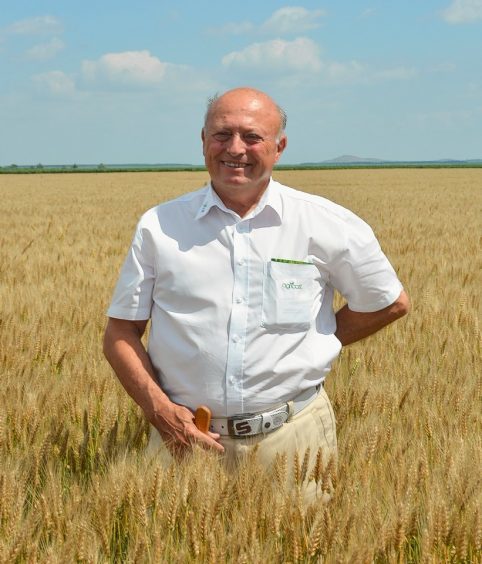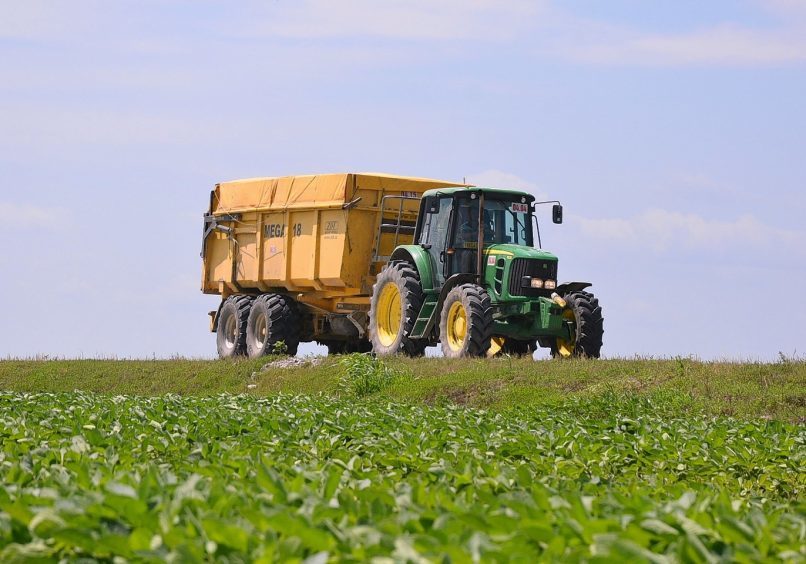It may not be common knowledge for some but the biggest farm in the European Union extends to 140,850 acres and is in Romania.
Spreading out across the fertile lands around Braila in the south-eastern part of the country, Agricost has developed into the biggest cereal producer in Romania receiving around 10million euros (£8.78million) in EU subsidies.
Braila is a port town sitting beside the River Danube which makes it logistically well placed to ship out the grain.
From a bird’s eye view, Romania has a total agricultural area of 36.32million acres of which 22.98million acres are used for arable purposes. However, due to a lack of investment and irrigation up to 3.21million acres of arable land lies unused each year.
Romania ascended into the European Union in 2007 and it is clearly evident when travelling around the country how big an influence EU money has had on agriculture and infrastructure.
Agricost is a company owned by Constantin Dulute and 70-year-old Lucian Buzdugan is the president of the administration board.
All of the land on the farm is rented from the Romanian government on 30-year contracts but all the network of roads, irrigation and even a barge to ship the cereal from the nearby port have been provided by Agricost.
In 2016 Agricost harvested 416,000 tonnes of grain, which was the highest from a single farm in Romania. The company has set a new goal to produce 500,000 tonnes in 2018.
The 2017 crop comprises: 36,703 acres of autumn wheat; 19,887 acres of autumn barley; 28,929 acres of corn; 24,849 acres of soya; 20,223 acres of sunflowers; 6,227 acres of alfalfa hay and 642 acres of peas. This gives a total of 137,460 acres and the remainder is fallow.
Rapeseed has been planted on the farm in the past but just last year a decision was taken to cease this crop as it was not generating profit.
Yield averages in Romania are low compared to other EU arable nations due to a shortage or indeed a deluge of water. In the majority of cases there is not enough water to maintain the crops while in extreme cases heavy rain or hail can wipe out a crop overnight.
Next harvest the team at Agricost are aiming for average yields of: 3.24 tonnes an acre for wheat; 3.64 tonnes an acre for barley; 1.5 tonnes an acre for sunflowers; 1.62 tonnes an acre for soy; and 4.86 tonnes an acre for corn.
Agricost owner Constantin Dulute said: “Tradition, performance and innovation, but also the implementation of new technologies based on efficient resources management, in harmony with the environment represents the mission of Agricost. With all that in mind we were able to harvest over 410,000 tonnes in 2016.
“For the 2018 year, we are economically pursuing a production of 1,000 tonnes per active employee with a total production of 500,000 tonnes that year by expanding the direct sowing technologies.”
With just under 148,263 acres to sow, maintain and harvest the business requires a lot of machinery.
Lucian Buzdugan said: “We have 200 tractors including 10 Case Steigers as well as 100 combines. The majority of the tractors and combines are from Claas. We normally keep machinery for eight years before replacing it. Last time we bought machinery we ordered 30 new combines in the one order.”
He said in one year the company uses around 5million litres of diesel, and that includes the fuel needed to power the farm’s 400 irrigation pivots.
“We receive 175 euros (£153.63) per hectare (£62.17 per acre) on average from the European Union. If it were to cap our subsidies, that would be totally disastrous for our business here,” added Mr Buzdugan.
“Corn is our most profitable crop on this farm. Last harvest we achieved a yield of 5.38 tonnes per acre and received 150 euros (£131.54) per tonne for that. Our cost per hectare is in the region of 1,428 euros (£1,253.60 or £507.31 per acre) so with the subsidy we make over 725 euros (£636.45) per hectare (£257.56 per acre) profit.”
When it comes to selling the grains only 10% of all production from Agricost is sold direct to customers and the remaining is sold on the stock market. Mr Buzdugan said Romania was being discriminated against when it comes to the use of genetically modified (GM) crops. He said: “The EU has banned us from using GM in Romania yet it allows us to import GM feed. That is discrimination in terms.
“GM soya could help us resist disease and reduce pesticide but we are forbidden from using it.”


